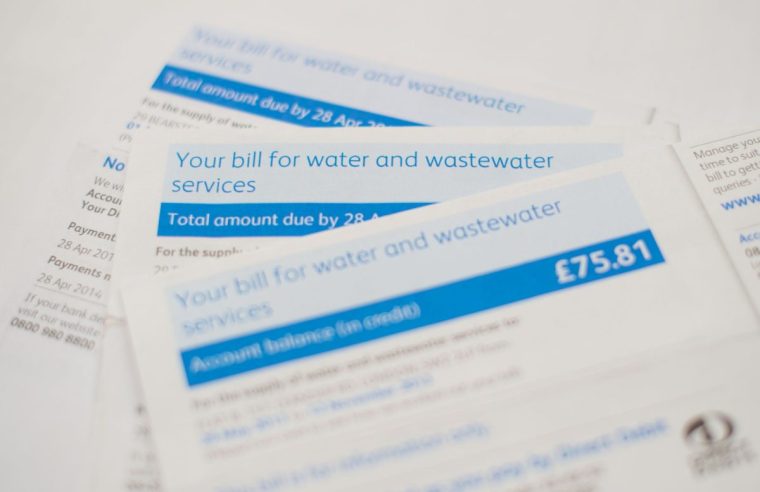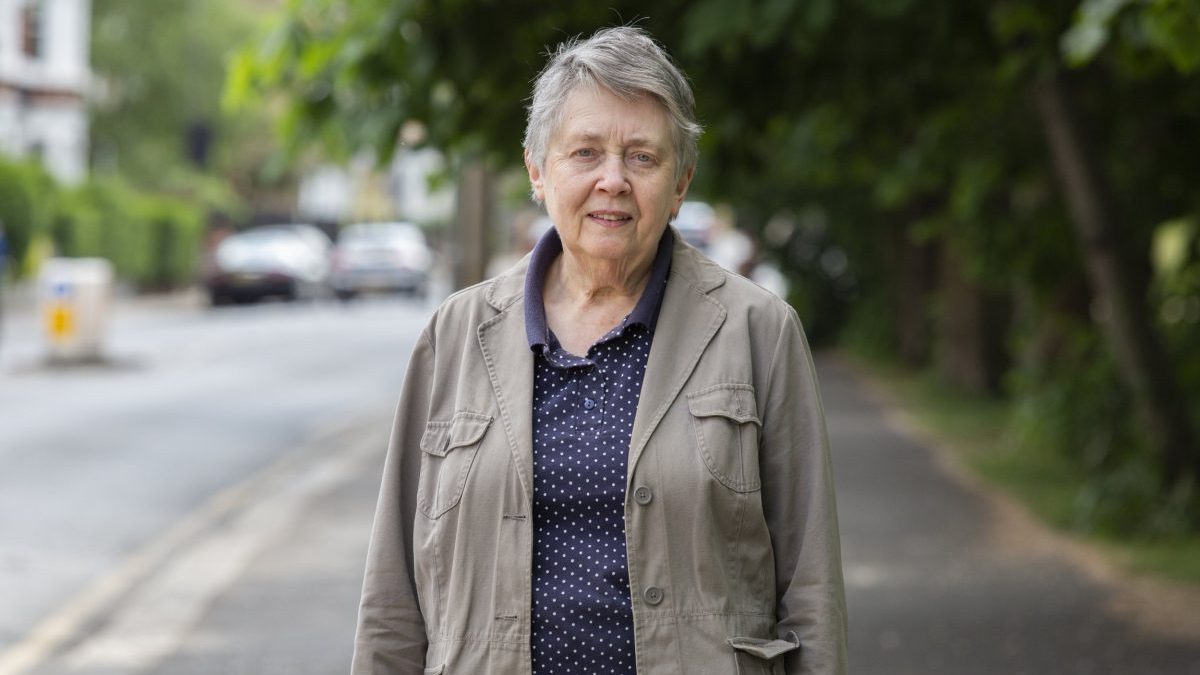Low income pensioners have been forced to take drastic measures to cut back as they face rising water bills
Pensioners living in water poverty are cutting back on showers and even flushing the toilet less in order to keep their bills down, research from charity Independent Age shows.
Almost half (46 per cent) of older adults (65+) in England and Wales living on a low income are currently cutting back their spending on their water usage either a “great deal” or a “fair amount”, polling carried out by the charity through YouGov found.
The survey suggested that 46 per cent of older people on a low income had reduced the number of times they flushed the toilet to reduce their bills in the first half of this year, while 41 per cent had cut their washing machine usage and 31 per cent had restricted the amount they showered.
Some 43 per cent of respondents said they were worried about meeting the cost of their water bill over the next six months.
Cost of living crisis
Judith Howard, 78, from London, told The i Paper she moved onto a water meter to reduce her bills from £40 a month to around £12 by the start of this year, however, she was then told that the bill was going to rise to £29 from April.
“I was expecting it to go up by about 40 per cent” because of a notice on one of her bills, “and I was going to haggle about that,” but then it “went up to a 140 per cent” increase, Ms Howard, a former organ builder, said.
“That’s all very well, but if council tax and everything else goes up, even by 5 per cent, I will soon find that my annuity, which pays for bills, will not cover them, which is really worrying.”
 Water bills are set to rise over the next five years (Photo: Dominic Lipinski/PA Wire)
Water bills are set to rise over the next five years (Photo: Dominic Lipinski/PA Wire)
Ms Howard’s annuity gives her an income of around £4,000 a year on top of her state pension, which has gradually pushed her further and further over the income tax threshold because of the triple lock increases. She said that this means the amount she receives from her annuity has reduced from £350 a month to £280, which “barely covers” her bills.
She added: “I’ve stopped having baths and just use my basin to wash myself as I can’t afford to have a shower.
“We’re now on our fourth heatwave, and as a keen gardener, I do have to put some water on the garden, but the consequence of that is that I’m not doing laundry at home and I’m going to the launderette by bus.”
Ms Howard has two water butts, but the dry weather this year hasn’t given much opportunity to accumulate a supply. She said she once even rescued two jugs of water that were going to be poured down the sink in her church and took them home to water her plants.
Ms Howard said: “I have even resorted to restricting the number of times I flush the loo. I don’t like living this way, but I have no choice.
“It’s pretty horrible in the hot weather; it’s not a pleasant lifestyle.
“What is worrying is that if I went back to a normal sort of usage, I would then soon be back to the £40 a month I was paying before I had the meter.”
“Twenty-nine pounds doesn’t sound like an awful lot compared to what a lot of people are having to pay,” but “I’ve got to think about the future,” and preventing further increases, she said.
Social tariff on water
Independent Age is calling for a national social tariff for water ensuring that people of all ages on a low income would qualify for consistent financial support to lower their water bills.
In 2024 the charity’s research suggested that without intervention, the number of older people living in water poverty could rise from 750,000 to almost a million by 2029/30.
It comes as figures showed households are paying £10 more on average for their monthly water bills this year.
The rise will see average annual bills hit £603 although there are regional differences with South Water customers seeing a 47 per cent increase and customers of Yorkshire Water, receiving a 29 per cent hike.
Independent Age’s director of policy and influencing, Morgan Vine, said: “Older people on a low income in England and Wales are in desperate need of a national social tariff for water, without it, there will be a tsunami of water poverty among people of all ages including our older generation.
“The people in later life we support tell us the drastic lengths they are taking to reduce their water bills,” she said, telling The i Paper that the charity has seen a “definite” rise in the number of people telling staff they are concerned.
“This shouldn’t be happening in a modern wealthy society.
“We urge the UK Government to listen to the voices of people on low income and the Independent Water Commission,” which recommended the introduction of a national social tariff in July. She said that this would “end the postcode lottery of support as soon as possible”.
“While all water companies must offer a social tariff, they vary considerably in generosity and eligibility criteria. Where you live shouldn’t dictate how much help you receive,” she said, adding that: “Often, the people that we speak to have no idea that there are existing discounts available.”
She said that companies’ social tariffs could range from someone on a low income getting 50 per cent off their bill to someone getting £40 off.
“Sometimes it’s really positive for the older person on low income, and sometimes it doesn’t touch the sides,” Vine said.
She said that any national social tariff should not be based on income alone but on the proportion of income used on water bills, adding that if people are using 3-5 per cent of their income on water it is defined as water poverty.
“Now is the time for action, there can be no delay.”
Ms Vine also called on companies to “proactively” inform their customers about their own social tariffs, and to contact people if their water usage begins changing drastically so they can perhaps avoid a significant increase in their bills.
Ms Howard said that a national social tariff would be “brilliant” and “change my life”. She suggested that if the Government is setting an income threshold of £35,000 on winter fuel payment eligibility for pensioners, they might match this in any social water tariff they introduce.
A spokesperson for the Department for Environment, Food and Rural Affairs (Defra) said: “The Government has put down the building blocks to clean up England’s rivers, lakes and seas for good, and protect families from massive bill hikes.
“Under this government, the number of customers that will receive help with their bills through social tariffs has grown – from 4 per cent to 9 per cent.”
Defra has launched a consultation to reform the WaterSure support scheme, proposing stronger protections to low-income households with high essential water use.
Following the Independent Water Commission’s recommendations in July, the Govermment is preparing to abolish water regulator Ofwat to establish a new, single regulator with responsibilities that currently spread across the Environment Agency, Natural England and the Drinking Water Inspectorate as well.
Defra said that this and other reforms will secure better outcomes for customers, investors and the environment.
